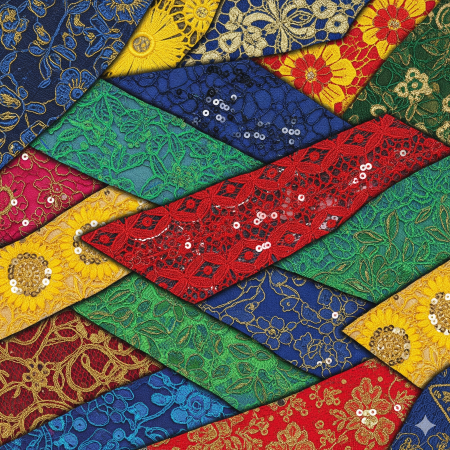Afro Trailblazers Series(Part 20): Burna Boy

Early Life and Family Background
Damini Ebunoluwa Ogulu, professionally known as Burna Boy, was born on July 2, 1991, in Port Harcourt, Nigeria. He grew up in a family with strong musical ties. His maternal grandfather, Benson Idonije, was the first manager of Afrobeat pioneer Fela Kuti, while his mother, Bose Ogulu, a linguist and dancer, later became his manager.
Burna Boy attended Montessori International School for primary education and Corona Secondary School in Ogun State for secondary school. He later moved to the United Kingdom, where he studied Media Technology at the University of Sussex and Media Communications and Culture at Oxford Brookes University. He eventually dropped out to pursue a career in music.
Early Career and Musical Development
Burna Boy’s musical journey began at just 10 years old, when he started crafting beats with FL Studio (then known as FruityLoops), laying the foundation for what would become a globally recognized sound. His big break came in 2012 with the pop single "Like to Party," which quickly captured the hearts of fans across Nigeria and its diaspora.
His debut album, L.I.F.E, now has over 20 million plays on Spotify.
Drawing inspiration from Afrobeat legend Fela Kuti, Burna Boy often weaves Fela’s signature rhythms—and occasionally melodies—into his music. The result is his signature Afro-fusion style: a bold, genre-blending mix of Afrobeat, dancehall, reggae, pop, hip-hop, and R&B that’s as dynamic as it is distinctive.
Rise to International Prominence
In 2017, Burna Boy signed with Atlantic Records, expanding his reach to international audiences. This period saw the release of several notable albums, including:
His 2020 album Twice as Tall won the Grammy Award for Best World Music Album in 2021. African Giant was nominated for a Grammy and won Album of the Year at the All Africa Music Awards.
Recognition and Achievements
Burna Boy has received several awards and distinctions, including:
BET Awards for Best International Act (2019, 2021, 2023)
African Artist of the Year at the Ghana Music Awards (2020)
Headies 2023: Afrobeats Single of the Year and Song of the Year for "Last Last"
Named a Member of the Order of the Federal Republic (MFR) in 2022 for his contributions to music
Ranked #197 on Rolling Stone’s 200 Greatest Singers of All Time (2023)
Love, Damini became the highest-debuting Nigerian album on the Billboard 200 and performed well in France, the Netherlands, and the UK. Burna Boy became the first African artist to have two albums each reach over 1 billion streams on Spotify.
Entrepreneurship and Business Ventures
Burna Boy is the founder and CEO of Spaceship Records, a Nigerian-based record label. He has also generated an estimated $12.3 million in revenue over two years, making him one of the highest-grossing African artists during that time. His net worth has been rumored to be approximately $22 million, however in an interview with complex, he laughs at this figure, and says it is way off. His laughter implies that he could be worth alot more than this.
Collaborations and Influence
He has collaborated with major Nigerian artists such as Wizkid, Timaya, Reminisce, and Olamide, and with international artists including Stefflon Don (also his former partner) and others through his label affiliations. His work often includes themes of African identity, socio-political commentary, and cultural pride, consistent with his Afro-fusion identity.
Conclusion
Burna Boy's career reflects the trajectory of an artist who leveraged a musically rich background, early exposure to production tools, and an evolving international music landscape to establish himself as a major figure in global music. While his career has not been without controversy, his influence in shaping and exporting Afro-fusion and Nigerian music more broadly remains significant.
Is there any other fun fact about Burna Boy you think we should know? drop it in the comment section and check out more celebrities in our Afro Trailblazers series, by clicking on the Entrepreneurship category at the top of this page.
You may also like...
Ndidi's Besiktas Revelation: Why He Chose Turkey Over Man Utd Dreams

Super Eagles midfielder Wilfred Ndidi explained his decision to join Besiktas, citing the club's appealing project, stro...
Tom Hardy Returns! Venom Roars Back to the Big Screen in New Movie!

Two years after its last cinematic outing, Venom is set to return in an animated feature film from Sony Pictures Animati...
Marvel Shakes Up Spider-Verse with Nicolas Cage's Groundbreaking New Series!

Nicolas Cage is set to star as Ben Reilly in the upcoming live-action 'Spider-Noir' series on Prime Video, moving beyond...
Bad Bunny's 'DtMF' Dominates Hot 100 with Chart-Topping Power!

A recent 'Ask Billboard' mailbag delves into Hot 100 chart specifics, featuring Bad Bunny's "DtMF" and Ella Langley's "C...
Shakira Stuns Mexico City with Massive Free Concert Announcement!

Shakira is set to conclude her historic Mexican tour trek with a free concert at Mexico City's iconic Zócalo on March 1,...
Glen Powell Reveals His Unexpected Favorite Christopher Nolan Film

A24's dark comedy "How to Make a Killing" is hitting theaters, starring Glen Powell, Topher Grace, and Jessica Henwick. ...
Wizkid & Pharrell Set New Male Style Standard in Leather and Satin Showdown

Wizkid and Pharrell Williams have sparked widespread speculation with a new, cryptic Instagram post. While the possibili...
Victor Osimhen Unveils 'A Prayer From the Gutter', Inspiring Millions with His Journey

Nigerian football star Victor Osimhen shares his deeply personal journey from the poverty-stricken Olusosun landfill in ...





